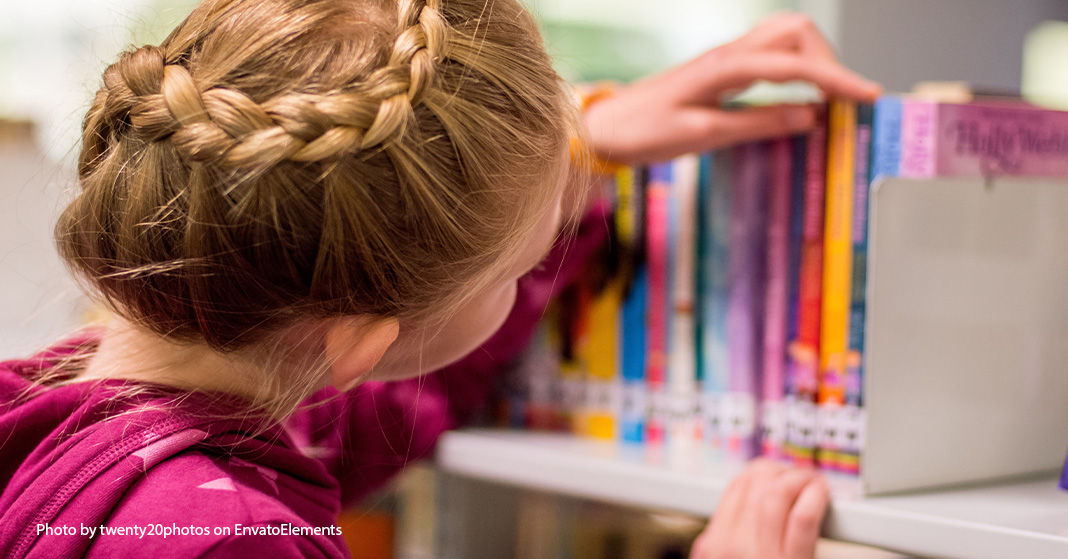
One of the most common questions homeschool families have is, how do you stay organized? Homeschooling involves so much, and you can’t store all of it in a bin at the end of the day. Finding a method of staying organized can be key in reducing stresses you don’t need. But figuring out how to get yourself organized can be a lot like choosing a curriculum and homeschooling style. What works for one family may not work for you. We’d like to offer both experienced and new homeschool families a collection of tips, tricks, and techniques to help you be successful and stay organized in your homeschool.
Simplified Homeschool
You know that organization is the key to a smooth homeschool day. We share tips on planning your time and lessons as well as advice from other homeschool parents. There are also highlights from our Distance Learning daily video-lesson program, which is designed to simplify your homeschool.
Start here:
Tips for Homeschooling Multiple Children
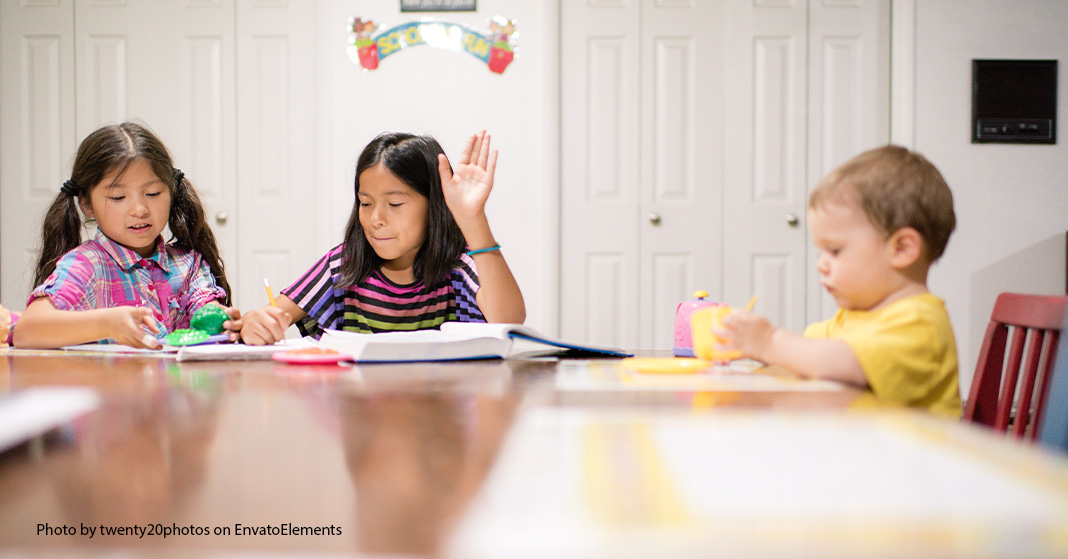
When I started homeschooling four years ago, I wasn’t homeschooling multiple children. I had one student and a toddler in tow. It wasn’t hard to get through our homeschool day. My biggest stresses usually came from the toddler when she was grumpy or getting into things. Since then, I have added two more students (and another toddler), and now things are definitely a little more challenging. Not only am I trying to keep the toddler out of trouble, but I am also trying to teach and/or manage over 20 homeschool courses. Next year I will add another student, and my head is already spinning.
Resources for Homeschool Projects
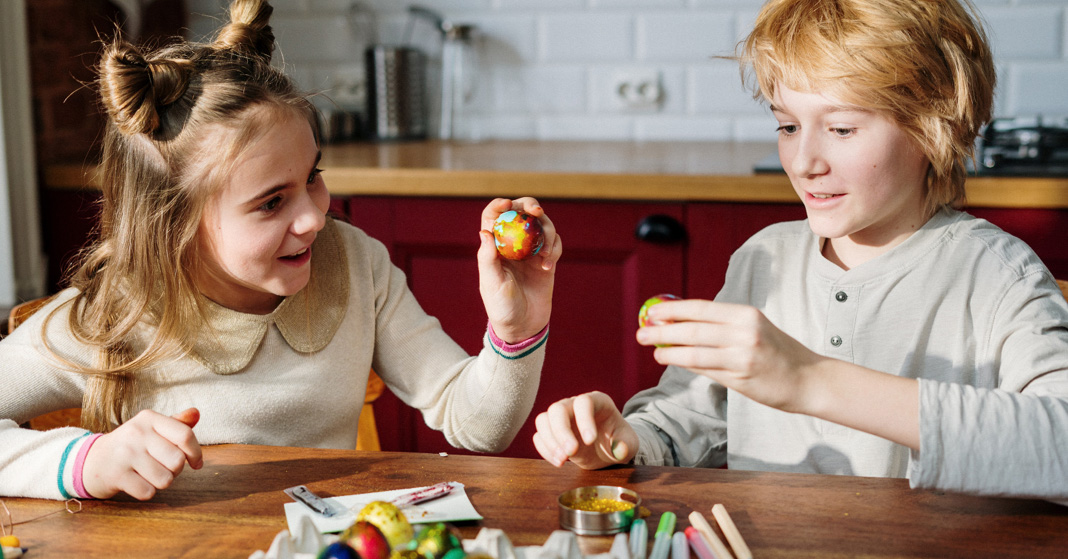
Projects, activities, and labs all play an important role in homeschooling. Sometimes we use them to help us assess whether or not our child truly understands a concept. And sometimes we use them to build a deeper understanding about a concept. But homeschool projects can be challenging, because, in order to do them, we have to have the right materials. That means that we have to plan ahead to make sure that I have everything we need. And sometimes getting those materials can be difficult and expensive. If you are like me and have multiple school-aged children, you may be tempted to skip those projects all together. [Read more…] about Resources for Homeschool Projects
Making the Most of Breaks
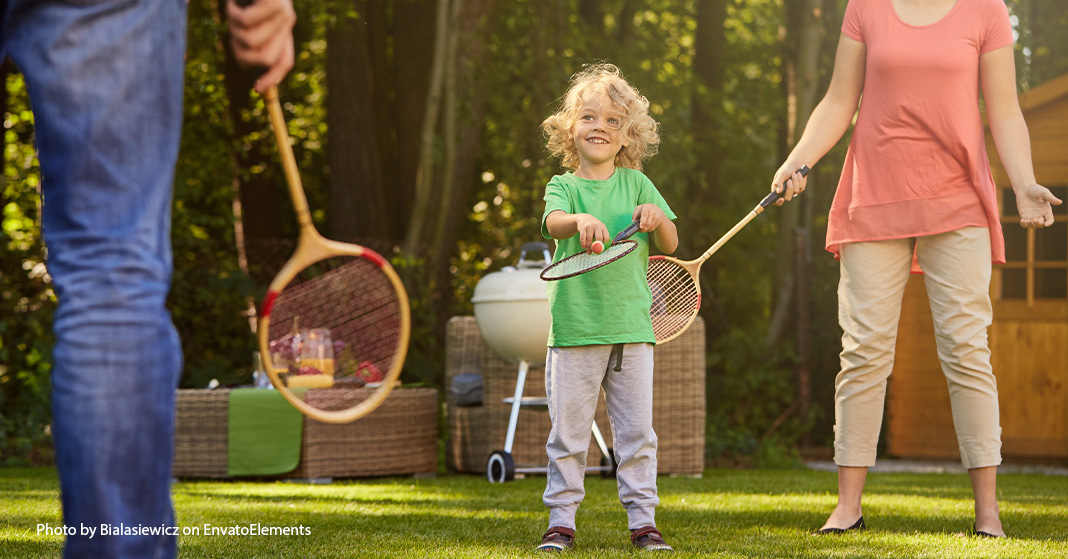
We all need breaks—spaces of time where we step out of the regular routine and move into a different schedule, or perhaps no schedule at all. For a goal-minded homeschool parent, taking a break can lead to more stress than usual as kids have fewer tasks to occupy them. Let’s talk about a few different kinds of breaks, and discuss some tips for making the most of them.
The Adventure Break
This is the adventure you go on when you’re sick of all your usual haunts and familiar places. It’s a summer where you stuff backpacks with snacks and drinks and find all the trails you’ve never been on. Or you go to a different playground every day.
Your explorations might include visiting a nearby lake or waterfall, going horseback riding, taking a camping trip, or touring a historical site. A cave, a tunnel, a covered bridge, a rock formation, a nature preserve, a children’s museum, an arboretum—any point of interest within a day’s drive is fair game.
The best part? An adventure break often turns into an educational experience without much effort from you!
The “Anything Goes” Break
Sometimes, we all need a day or two where we do absolutely nothing useful. It’s the kind of break where kids get to do whatever they want all day long, with minimal rules. Maybe that’s extra TV or electronics while mom kicks her feet up and reads books. Maybe it’s take-out for every meal to minimize cleanup, and maybe you skip the household chores for a day or two.
The only trouble with this carefree break is that you eventually have to go back to normal, so be ready for that! Even so, this indulgent respite can be deeply refreshing and can help you appreciate your more structured way of life.
Peaceful, Purposeful Breaks
Perhaps the best summer break is a blend of adventure, activities, and rest. You can have days where you venture into the unknown, ready for anything, as well as days of quiet relaxation at home. Have some review papers and library books on hand for those hot summer afternoons. That way, your kids can keep their knowledge fresh. Puzzles, board games, Legos, water play, and art projects can keep kids busy for hours, even if you’re not feeling adventurous.
You could make a schedule for summer break. For example, some families prefer adventure in the morning and rest in the afternoon, while others prefer a day of adventure followed by a day of rest. Summer schedules differ for every family, especially if you have toddlers or babies in the mix. But the best experiences usually happen when you’re willing to bend the schedule, or toss it out altogether, and dive into a new experience with your children!
• • • • •
Rebecca is a work-at-home freelance writer, novelist, wife, and the mom of two bright-eyed little ones. She credits her success in writing and her love of books to her own mom, who homeschooled three kids from pre-K through high school.
Homeschooling vs. Crisis Schooling
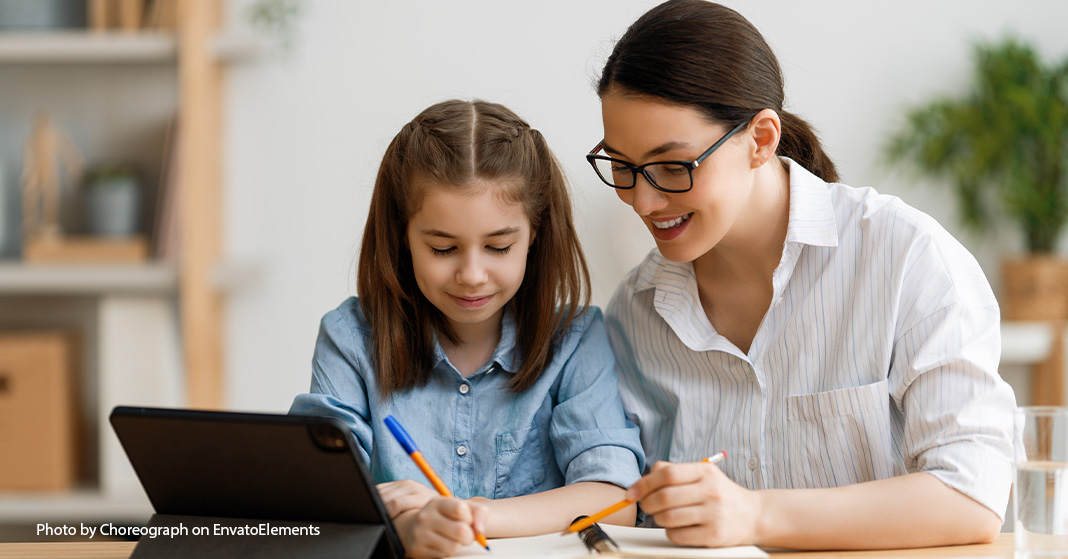
On March 16, 2020, both public and private schools in my state were suspended due to the COVID-19 pandemic. No longer would the yellow school buses rumble down my street. No longer would I have to dodge school car-lines on my way to an appointment. When my fifth-grade daughter heard the news, her reaction was jubilant: “Now every kid in the state is a homeschooler!” Not exactly. Every child in my state was now being schooled at home. But there are big differences between being schooled at home and being homeschooled. Many are calling the new situation “crisis schooling”—parents simply trying to continue their child’s education during a time of crisis. Most families probably have no long-term plans to continue educating their children this way.
But perhaps you know a family who is—or was—considering homeschooling their children and is now uncertain what homeschooling is all about. Now is the time to share the homeschooling vision with them. Here are some specific things that you may want them to know about the difference between homeschooling and crisis schooling.
Homeschool parents are in charge of their curriculum.
In a crisis schooling situation, the parents are not really in charge of their child’s education. The school is. The school decides what work students complete. It chooses the curriculum. The parents are facilitators.
If the child is enrolled in a public school (or any of the free online public school options), the situation is even worse. The government is in charge. And the curriculum it chooses is not “religiously neutral”—it is often at war with God’s law. This curriculum teaches the children of our nation that God is not Creator, that there is no absolute truth, and that there are no moral absolutes.
One of the great blessings of homeschooling is the fact that I, as the parent, get to be in charge. I get to choose my child’s curriculum. One of the main reasons that my husband and I have continued to use BJU Press Homeschool curriculum is that their curriculum aligns with our values. Every single textbook gives me the tools to shape my child’s worldview according to the Bible.
As a homeschool parent, I also have the freedom to make adjustments to my curriculum to meet the needs of my family and the learning needs of my individual children. We can go at our own pace. We can add or omit assignments. Homeschool parents are not the slaves of the curriculum we choose. We are the masters of it.
Homeschool parents are in charge of their schedule.
Not only do I get to be in charge of my curriculum, but I also get to be in charge of my schedule. Of course I have to meet the attendance requirements of my state, but no one dictates a start date or an end date for me. I can choose to follow a traditional school-year schedule or homeschool year-round. My children can do their lessons in the morning or wait until later in the day. I can even take a two-hour break for music lessons in the middle of the afternoon. The flexibility of homeschooling is wonderful.
Homeschool parents are in charge of their children’s socialization.
One of my crisis-schooling neighbors told me the other day that I was lucky that I was a homeschooler before the COVID-19 crisis. “Not much has changed for you,” he commented.
He was wrong. It’s not normal for me to go weeks on a single tank of gas. I, like most homeschoolers, am not an isolationist. I just like the freedom to choose the company my children keep. My children may not have been surrounded by other children on a school bus or in a classroom all day, but before the current crisis they had plenty of social interaction—with people of differing ages, races, and socioeconomic backgrounds.
Homeschooling provides wonderful opportunities for relationship-building. We have the time and the freedom to get involved with church ministries and community outreaches. We meet people with shared interests as we pursue our children’s gifts in music, art, sports, and other hobbies. Plus, the homeschooling community itself is a pretty close community. I would be lost without the support of my local homeschool friends.
Homeschooling to me means freedom—the freedom to parent and educate my children according to my values. It is a not a freedom that I take for granted, and I am thankful for those who have worked hard to win me this freedom. I fear that our freedom to homeschool may be challenged in the near future thanks to the confusion between crisis schooling and homeschooling. So be sure to share the vision of homeschooling with others. Help them understand what homeschooling is all about!